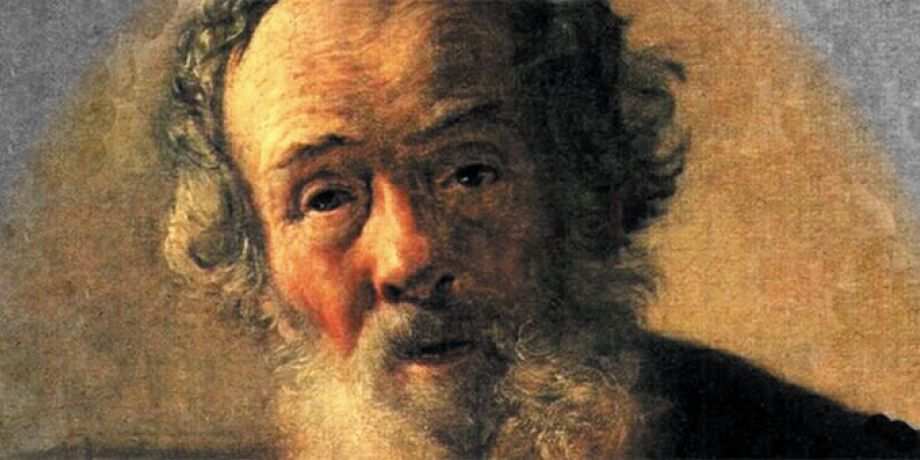
The Gift of Faith
Bartimaeus, a beggar, was sitting on the roadside, outside Jericho, blind, begging, isolated, speechless, mute. When he heard that Jesus of Nazareth was passing by He waited. How long did he wait? We can imagine him straining for the sound of footsteps along the road, hoping for a rising murmur among the crowd to signal Jesus' approach. We don't know how long he waited, only that when Jesus finally came by, he shouted out, "Jesus, Son of David, have mercy on me!" The crowd passing by is giving him poor pastoral advice: "Keep quiet!" But Jesus challenges the crowd: "Let him go free!" It is important that Bartimaeus finds a language for his loss and his pain. The blind man screams a cry of the heart, a sign of faith. Bartimaeus asked for sight, and he received light and enlightenment, as well. The gift of faith comes when we tap the places of hope and faith inside us.
We can imagine him straining for the sound of footsteps along the road, hoping for a rising murmur among the crowd to signal Jesus’ approach.
Could it be that beggars know how to open their hands? They are reduced by necessity, by the sharp knowledge of their utter dependence. A beggar simply trusts, moment by moment. The beggar represents that part of us that is stripped of our essence, sitting ragged in our need, with out hands open, trusting the mercy and surprise of life to hold us up.
Where are we along the road? Are we pushing through the crowd, shouting "Jesus Son of David have mercy on us!" Or are we just sitting by the roadside, too depressed, too weary even to raise our voice? We need to find the beggar part of us, sitting in stillness, in our blindness, in our beggar clothes. We touch our weakness, our humanity, our limitations, our neediness. We face our dependence on God. In this posture of owning our weakness we are transformed.
We touch our weakness, our humanity, our limitations, our neediness. We face our dependence on God.
Suffering can turn us in on ourselves; it can reduce us to silence. We may be mourning or grieving for a relative who has died. We may be terrified inside and feeling very insecure. We create a false world of independence and fear. Like blind Bartimaeus we too need to find a language for our loss. We won't be capable of absorbing any of the pain in the world if we haven't absorbed our own pain. It is a service to help people to mourn, to talk about their loss. It is a ministry to help people find meaning in life. There is a lot of suffering in the world that we can't do anything about, but there is a lot of suffering we can do something about and we can help people find meaning in their suffering. In the words of Rumi, the Sufi mystic and poet, we help them "taste only sacredness."
Reminding people "to pray and the problem will go away" is not Gospel ministry. That would be like the crowd in Jericho telling Bartimaeus to keep silent. If people cannot speak about their loss and their suffering, they remain locked in their pain. When we share the compassion of Jesus with them, we help them deal with that pain and find meaning in life. Jesus asked the suffering Bartimaeus: "What do you want me to do for you?" This is an important question for us too. What do we want Jesus to do for us? At the end of the story Bartimaeus is changed. He followed Jesus on the way and became His disciple. What is so exciting about this story is that when Bartimaeus is changed, the crowd is changed as well. A change in us brings about a change in others.
Columban Sr. Kathleen Coyle provided this reflection.